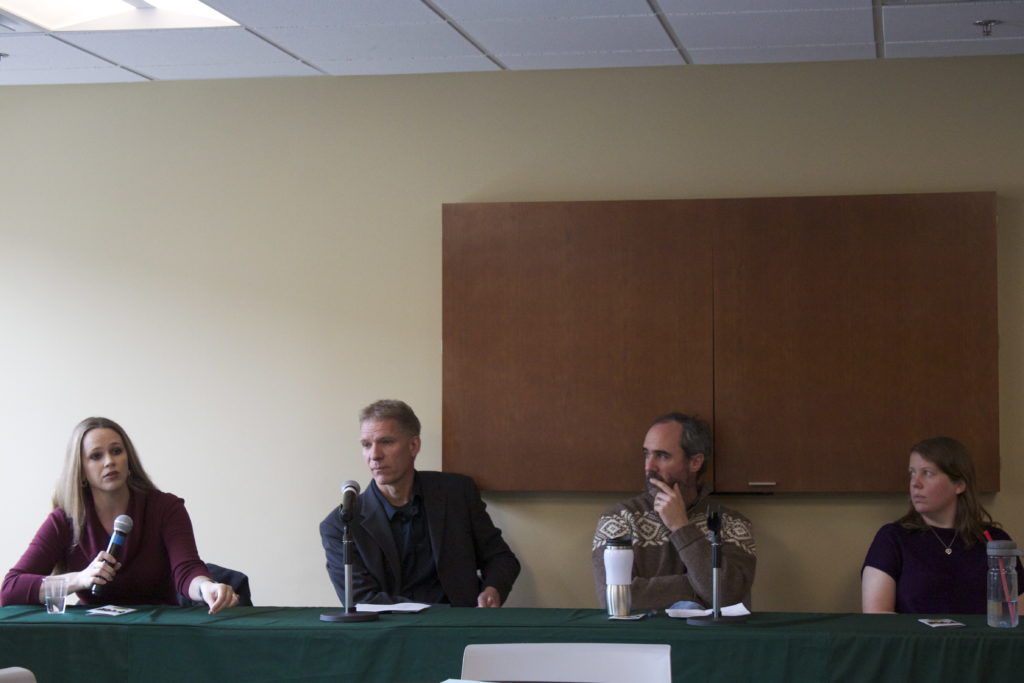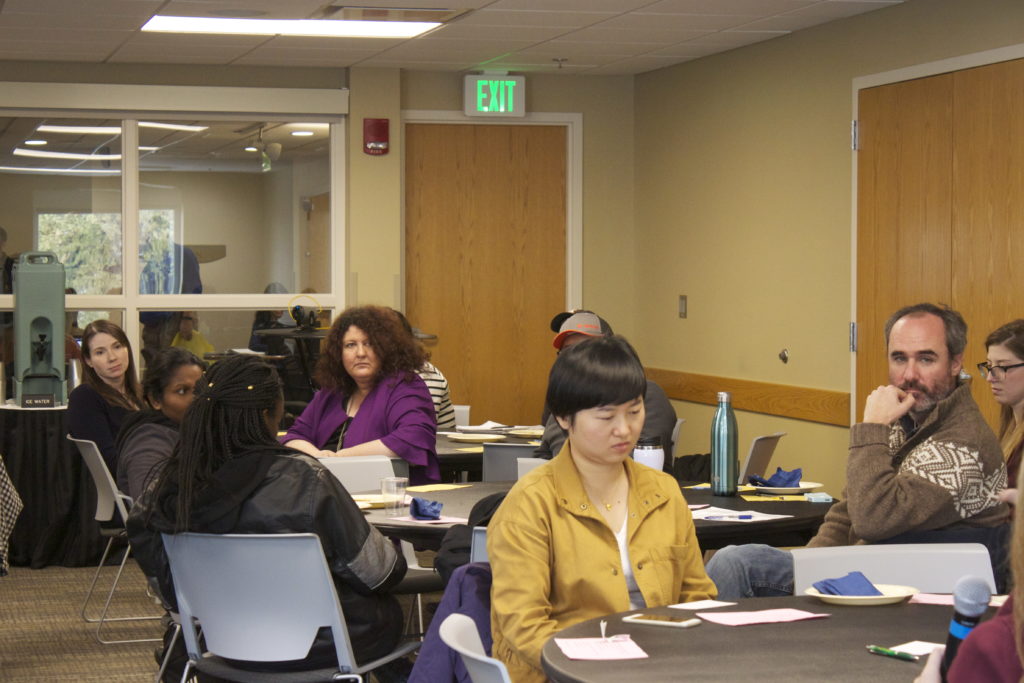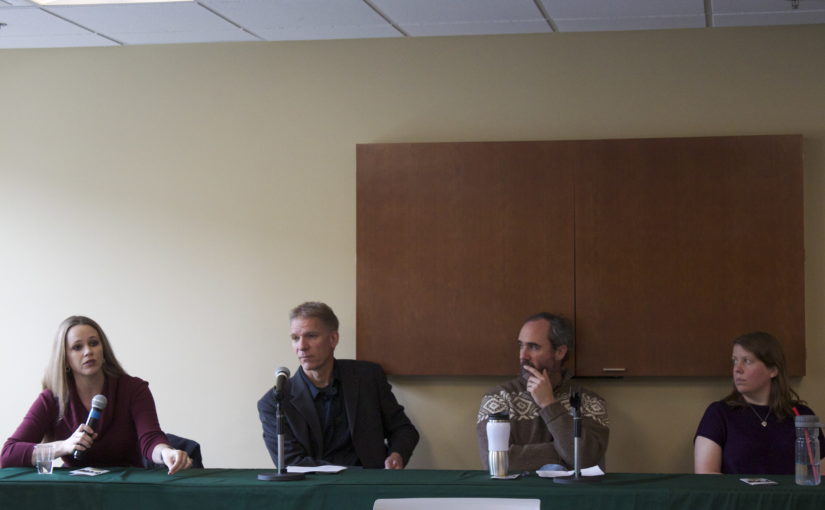
Panel of faculty members helped students further communicate with advisors.
A successful relationship with a graduate student advisor is key to completing a doctoral program. Many do not realize how hard it is to successfully have their expectations met with an advisor. To help further student’s careers, the NDSU Graduate Student Council (GSC) hosts monthly meetings that consist of advice for completing a degree.
On Oct. 11, GSC held “Advisor-Advisee Relationship: Expectations and Balances” to guide students on how to help their relationship with their advisor without hindering it.
At this meeting, there was a panel of four faculty members to help answer questions that do not normally get answered. The panelists included: Stefan Vetter, research assistant professor in pharmacy, Elizabeth Blodgett Salafia, associate professor in human development and family science, Ashley Baggett, assistant professor history, philosophy and religious studies and Tim Greives, assistant professor in biological sciences.
Keep in mind, most people do not complete their Ph.D. with the same advisor they started with. So if it is not working out and you decide to change advisors, it is not your fault and it shouldn’t be frowned upon. Do not feel discouraged if a change of advisor is needed.
Communication is the most important factor of any advisor-advisee relationship. Throughout any question or scenario, each panelist would mention open communication.
“Your relationship needs to be built on communication,” Blodgett Salafia said.
“The relationship with the advisors is one of the cruicial pieces of the experience”
-Maria-Claudia Tomany, Dean of Graduate School
A relationship with an advisor is long-term, so the advisee should communicate with them and be mutual about working hard toward that communication.
As an advisor, they should make their expectations known. As an advisee, you should feel comfortable expressing your expectations of your advisor.
To make sure all expectations on each side are met, dean of the Graduate School, Maria-Claudia Tomany, advised having an advisor meeting at the beginning and the end of the semester so you can be prepared, especially for your dissertation.
Blodgett Salafia explained how when the advisor and advisee have a negative and detrimental relationship it could be extremely difficult to complete a Ph.D., let alone be successful.
If you have a career path and know what you want to do during your Ph.D. experience, tell your advisor early on or once you know so they can help you achieve that. Clearly demonstrating your goal and staying driven is key to a successful Ph.D.
To further communication with your advisor, you should be asking questions more. If you want to collaborate on an assignment or want to meet with them more to stay on top of your career, ask. Sometimes advisors do not know your expectations because they are not communicated clearly. Asking questions can fix this and help them see your expectations.
“We want to help you get to that end result,” Baggett said.
To successfully receive a Ph.D., a positive advisor-advisee relationship is a key component. Without a positive relationship, it can hinder one’s experience and success in their field.
While committing to graduate school, students can feel as though they are underpaid in their work. Vetter explained how students should remember they are receiving education at the same time, but if they continue to feel it is low pay and if they calculated the costs, talking to an advisor can help.
A concern was raised about ruining the advisor relationship through bringing up the stipend amount, but if that relationship has already been established and created with open communication, it should not hinder it.

Graduate students gathered to learn more about positive advisor-advisee relationships.
“I think we (advisors) have empathy for the stipend amount that you (graduate students) receive,” Grieves said.
During the meeting, they gave separate round tables the same scenario to talk out with a faculty member to see how to handle common problems in an advisor-advisee relationship. Through this activity, students were able to talk one on one without worrying about hindering a relationship and ask questions pertaining to situations they have been involved in to help their career and relationship with their advisor.
GSC offers these meetings live online as well, so those who cannot make it can stay at home and watch without missing out on the opportunity. So if you are unable to make the next meeting, contact GSC for the link to the live stream.
